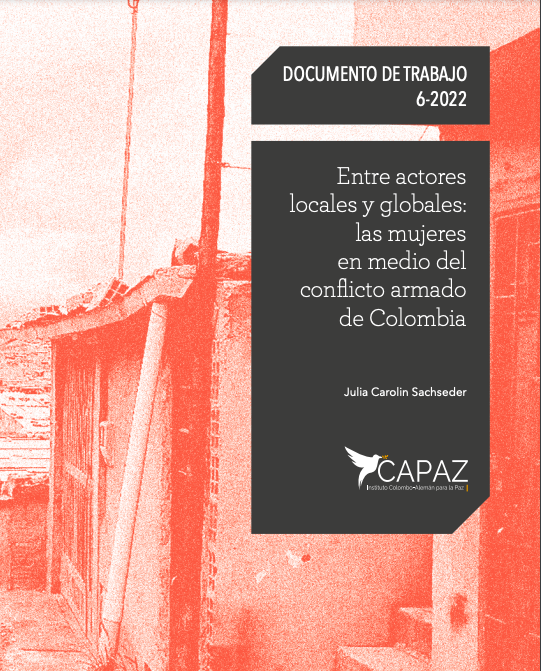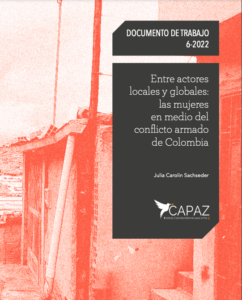
Working Paper: Women in the midst of armed conflict in Colombia

The most recent working paper published by the CAPAZ editorial project, is entitled “Between local and global actors: women in the midst of Colombia’s armed conflict”, and was written by Julia Carolin Sachseder.
Dr. Julia Carolin Sachseder, M.A. is a postdoctoral fellow at the departments of International Relations and Gender Studies at the Central European University in Austria. She is also a research affiliate of the Austrian Institute of International Affairs (OIIP) and a lecturer at the Department of Political Science at the University of Vienna. Her research interests focus mainly on the political economy and (post)coloniality of violence and (in)security, gender, and non-state and corporate actors in peace and conflict.
Abstract
In this paper, I propose to provide insights into the mechanisms and dynamics underlying violence against women in the armed conflict in Colombia. I argue that the key to understanding violence lies in the little studied but crucial role of transnational capital that not only induces its production but also its persistence, even in times when politicians, journalists, and many academics are used to thinking in terms of peace. Focusing on the conditions under which transnational capital shapes certain forms of violence, namely sexual violence, and internal displacement, I will show how it is not only conventional notions of “conflict actors” that usually focus on state military forces, paramilitary militias and rebel groups, but also other types, including global economic actors such as transnational corporations (TNCs), that are implicated in this relationship of violence. Sexual violence and internal displacement are thus part of a cycle of conflict and dispossession, which is presented and manifested in a broader system of social, political, and economic inequality that, on the one hand, serves the political-economic interests of local and global actors and, on the other hand, consolidates and stabilizes the (post)colonial social order and global hierarchies.
Click here for the CAPAZ 6-2022 working document (.pdf in Spanish)



